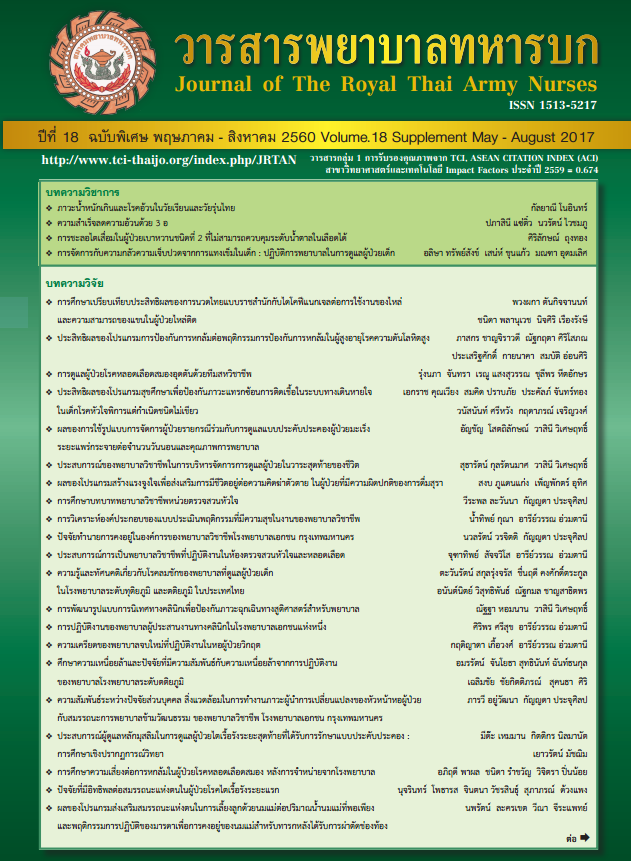การดูแลผู้ป่วยโรคหลอดเลือดสมองอุดตันด้วยทีมสหวิชาชีพ
Keywords:
โรคหลอดเลือดสมองอุดตัน, ทีมสหวิชาชีพ, Stroke, a multidisciplinary teamAbstract
โรคหลอดเลือดสมองอุดตันเป็นปัญหาสาธารณสุขที่สำคัญของประเทศ ทำให้เสียชีวิตภายใน 24 ชั่วโมงได้และก่อให้เกิดความพิการในระยะยาว เป็นภาระต่อครอบครัวในการดูแลผู้ป่วยที่ไม่สามารถช่วยเหลือตนเอง บุคคลในครอบครัวต้องเป็นผู้ดูแลผู้ป่วย ทั้งการดำรงชีวิตประจำวัน การพูด การรับความรู้สึก การมองเห็น สภาพอารมณ์ที่แย่ลง ซึ่งเป็นภาวะทุพพลภาพที่ยาวนานการดูแลผู้ป่วยโรคหลอดเลือดสมองอุดตัน ด้วยทีมสหวิชาชีพจึงมีความสำคัญต่อผู้ป่วย การดูแลที่ซับซ้อนผู้ที่เกี่ยวข้องในการดูแลผู้ป่วยโรคหลอดเลือดสมองจำเป็นอย่างยิ่งที่ต้องมีความรู้ความสามารถและมีความเชี่ยวชาญในการประเมินสภาพรวมถึงการดำเนินของโรคเพื่อช่วยให้ผู้ป่วยได้รับการดูแลที่ถูกต้องปลอดภัย ไม่เกิดภาวะแทรกซ้อน หรือมีความพิการหลงเหลือน้อยที่สุด
Care for Stroke Patients with a Multidisciplinary Team
Stroke is a major public health problem in the country. Deceased within 24 hours and cause long-term disability. It is a burden on the family to care for patients who can not help themselves. The family member must be the caregiver. Both daily living, speaking, feeling, seeing, bad moods. This is a long lasting disability. Care for patients with stroke. With a multidisciplinary team, it is important to the patient. Comprehensive care The caregiver involved in the care of stroke patients is required to have the knowledge and skills to assess the condition and the progression of the disease to help the patient receive the right care. safe No complications Or have the slightest disability.
Downloads
Downloads
How to Cite
Issue
Section
License
บทความหรือข้อคิดเห็นใดใดที่ปรากฏในวารสารพยาบาลทหารบกเป็นวรรณกรรมของผู้เขียน ซึ่งบรรณาธิการหรือสมาคมพยาบาลทหารบก ไม่จำเป็นต้องเห็นด้วย
บทความที่ได้รับการตีพิมพ์เป็นลิขสิทธิ์ของวารสารพยาบาลทหารบก
The ideas and opinions expressed in the Journal of The Royal Thai Army Nurses are those of the authors and not necessarily those
of the editor or Royal Thai Army Nurses Association.






